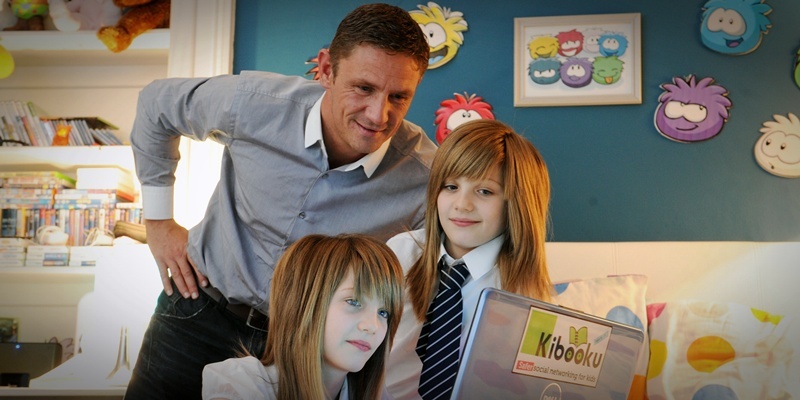An Angus dad has set up his own social networking site for youngsters after becoming so worried his children could become victims of cyber-bullying and paedophiles.
Jamie Tosh from Arbroath believes that Kibooku.com, which went live on February 15, is the ”safest, fun-filled site for younger children” aged six to 13. He said his motivation was to create a site which was a safe haven for thousands of children and which would give their parents peace of mind.
Jamie said: ”We were constantly being pestered by our 10-year-old twins who wanted to go online and chat to their friends but not a site they thought was babyish.
”However, when we did online research into a number of sites, I found there weren’t any that provided a safe and secure environment for kids to talk to their peers and for us to be sure of who they are actually in contact with at all times.”
Kibooku costs £1.95 a month and requires adult subscribers to provide personal details that can be traced to an address, along with other personal details.
Jamie added: ”We think that people who enter sites under false pretences will not divulge this information freely. We also have a double log-in system at the site’s set-up. At the beginning of each month the parent or carer will be required to unlock the site and check all the previous month’s activity, even deleted items.
”That means they will be in a position to report any abuse or bullying or any other concerns they may have about other users.”
Jamie found that most sites offered users the opportunity to set up a page and interact with children without leaving any, or very little, traceability should they wish to hide their identity.
”So we came up with a new solution which gives parents full control,” he said. ”It offers all the benefits of introducing young children to the fun side of social networking without any of the dangers of child predators or adult content.
”The site is set up in a way that lets us monitor who is on it and thus eliminate the fear that many parents or carers have about who is speaking to their children.
”On other social networking sites people can set up a profile and provide false information without any problem and, as they don’t need to provide identification, traceability is more difficult.
”However, on Kibooku.com you will never have to worry about who your child is talking to online because we have put control firmly in the hands of parents.
”Children can’t open their own web page without their parent creating a page first. Once the page has been set up kids have full access to it and can link up with their friends through schools, hobby groups, etc, but parents can monitor it closely and follow their children’s online chats at any time.
”We truly believe that this will be the safest place for kids to interact online. There are various other aspects to the site which we have attempted to set up as a one-stop ‘book’ for children to play, store and interact safely, such as a diary page, wall posts and events and there’s more to come.”
